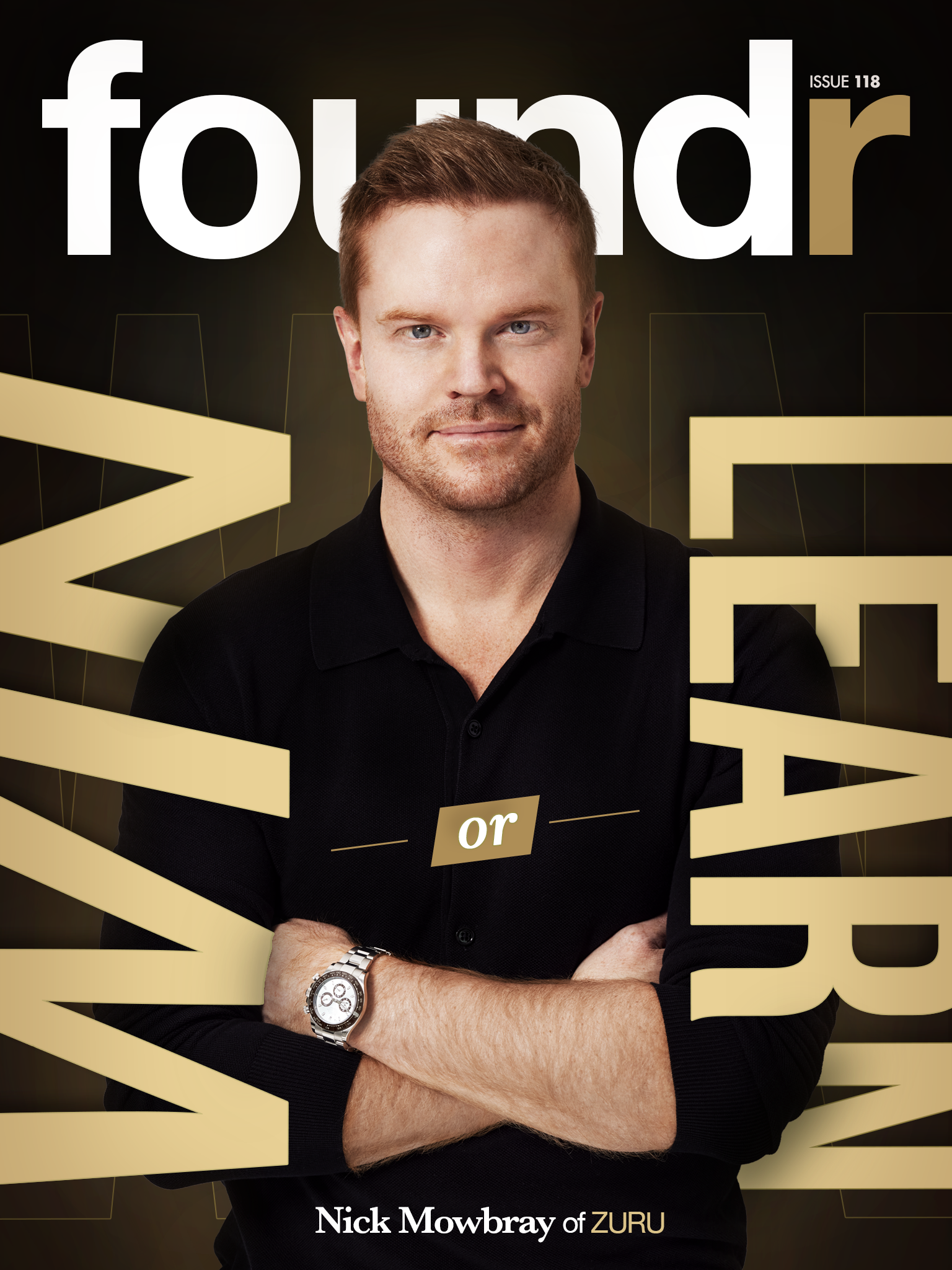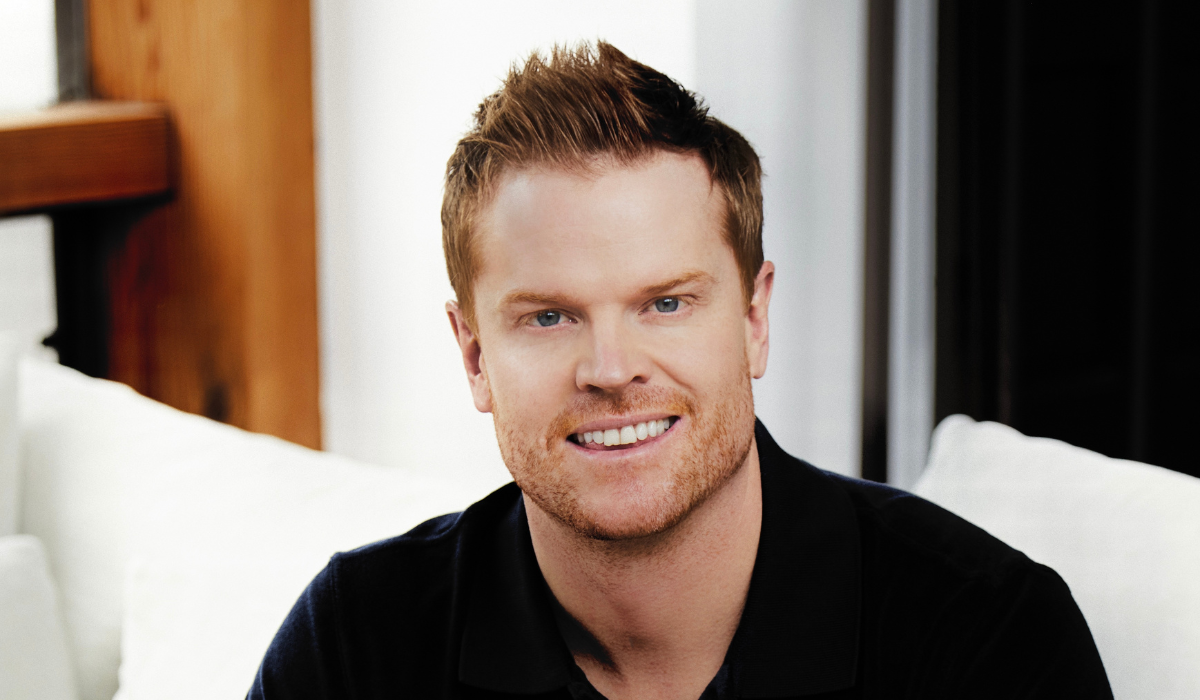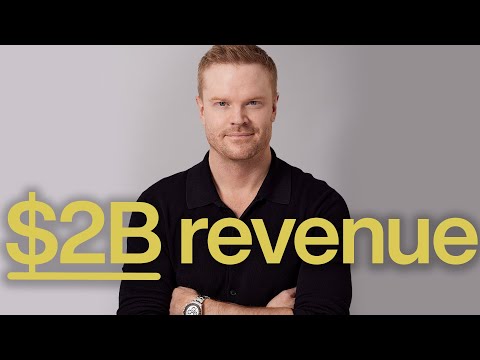Foundr Magazine publishes in-depth interviews with the world’s greatest entrepreneurs. Our articles highlight key takeaways from each month’s cover feature. We talked with Nick Mowbray, co-founder of ZURU, about building a multi-billion dollar toy company alongside his sibling. To read more, subscribe to the magazine.
—————
“One of my favorite sayings is you either win or you learn. And I would say that we did an awful lot of learning in those first four, five, six, seven years.”
That’s how Nick Mowbray describes his journey from sleeping under a bush outside the Hong Kong airport to building one of the most popular global toy brands, ZURU, which he founded in 2003 with his siblings.
Mowbray is co-founder of ZURU Toy Co., Zuru Edge, Zuru Tech, and Rhodes Pet Science. In 2018, he was named Entrepreneur of the Year in his home country, New Zealand, and he’s listed in the World Entrepreneur Hall of Fame.
He and his siblings, co-founders Mat and Anna, are worth more than $3 billion, while the company is valued at more than $1 billion.
Despite their success, the siblings didn’t go into the toy business with a deep knowledge of business or manufacturing. In fact, they didn’t even know much about toys.
They just had one hot air balloon model, a lot of hustle, and a willingness to learn from their mistakes.
Lesson 1: How to Build a Toy Company From a Science Fair Project
When he was 12 years old, Mat created a model hot air balloon that won first place at the New Zealand science fair. Soon after, Mowbray and Mat set up shop on their parents’ farm, making more balloons and selling them door-to-door and at hot air balloon festivals.
They continued to sell their model kits off and on throughout high school. They tried going to university—Mat for engineering and Mowbray for law—but both left after their first year to return to building the balloon kits.
That was the beginning of ZURU Toys.
They started with a makeshift production facility in their parents’ shed before moving to a small factory in Hamilton. But their tiny company struggled to get off the ground in New Zealand.
In 2004, when Mowbray was just 18 years old, Mat, who was 22, suggested they take a chance and set up shop in Hong Kong. They borrowed $20,000 from their parents and boarded a plane.
“I remember the first night we landed, actually, in Hong Kong,” Mowbray says. “We were going to get a hotel, but we realized how expensive it was in Hong Kong. And so we went back into the airport, but the [fluorescent] lights were so bright that we couldn’t sleep.”
“So we went into the bushes outside Hong Kong Airport, and then we got attacked by mosquitoes all night, but we slept in the bushes.”
Struggling, improvising, and making due: That’s how Mowbray and Mat—and later their sister Anna, who joined them the next year—would survive for the next six years.
They rented cheap apartments that served as their factory and showroom, as well. And they lived on less than a dollar a day.
“My cousin Simon had come over, as well,” Mowbray says. “He had sort of been working with us a lot early on. And Simon, well, that was our first production line.”
They hired a few people to help with production, as well as a cook. “So we had this little old Chinese lady who would cook in a big sort of pan, sitting right beside the toilet on the ground on the concrete floor next door to the factory. And she’d cook rice and vegetables every day,” he says.
McDonald’s was a treat for the siblings. In fact, it was their Christmas dinner one year. And Mowbray recalls once accidentally spending half his monthly allowance on one round of beer.
Lesson 2: Imitation Is Not Always the Best Form of Flattery
Meanwhile, the company slowly started to gain a foothold in the toy market, but not without some major mishaps.
“We were super naive, I think, is the only way to explain it. We didn’t really have a big idea or really any business plan. We hadn’t really thought through the space we could fill in the market,” Mowbray says.
“We were just going over there to try to make a hot air balloon.”
They didn’t know about toy safety standards, either. Because their hot air balloon didn’t meet global standards, they could sell it only to hobbyists.
Their second pitfall: They tried to expand their company by copying other toys they saw on the market. They tried to replicate a Frisbee with fiber optic lights and an animal-shaped bank that gobbled coins, but they quickly learned about IPs and patents when Mowbray took the toys to the New York Toy Fair.
“I’d sold them to a distributor called Schylling,” he says. “And we had them in Schylling’s booth. And I was on the booths and on the first morning, starting to sell our money gobbler and our night Frisbee. But within about the first hour, this guy came screaming into the booth. … He had a whole company called Night Ize that specialized in making these for a decade. And we had no idea.”
A few hours later, a woman from the company who made the original money gobblers also came into the booth. Mowbray had no choice but to take both products off the shelves.
“So within the first day of our first toy fair, I had no products to sell,” Mowbray says. “And I went back to China, tail between my legs. And I said to my brother, ‘Have you heard of this whole IP [and] patent thing? I think we have to really start innovating our own products.’”

Lesson 3: A Little Hustle Goes a Long Way
In those first years, Zuru saw some success here and there but didn’t really take off until 2010, when they agreed to manufacture a toy called the Robo Fish, a mechanical fish that swam underwater.
They would expand that product to a line of swimming animals called Robo Alive, a line that brings in $60 million in sales annually.
Their biggest hit, however, has been Bunch O Balloons, a device that inflates 100 water balloons at once. It brings in $200 million in annual sales.
Until they got those toys off the ground, it was all hustle and improvisation. Mowbray set up a showroom in mainland China that doubled as his sleeping quarters, his bed hidden under the display table. With no bathroom, he washed in public facilities.
Even then, Mowbray was figuring out how to outmaneuver the major toy brands by taking toys internationally from the start—a move that would pay off.
“I was learning how to hustle and get big retailers on board,” he says
“I would effectively ring all the big retailers and email them and hassle them every single day. And I was starting to get some bigger distribution channels.”
At the same time, they were developing more toys that were affordable and easy to make, allowing them to sell them more cheaply to consumers.
They developed a line of light-up balls and accessories called Night Sports.
“It wasn’t a great product line. But we were sort of paralleling it and opening up distribution that way,” Mowbray says.
Get the rest of Mowbray’s lessons by subscribing to the Foundr Magazine.
The post Win or Learn: 3 Business Lessons from ZURU Co-Founder Nick Mowbray — Exclusive appeared first on Foundr.




